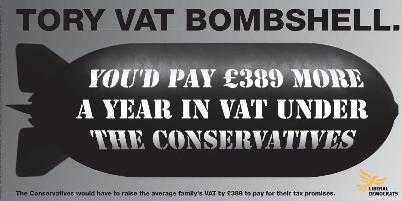Not being a supporter of either of the coalition parties, the current range of opportunities to accuse them of betraying their manifesto commitments are very tempting. It’s hard not to relish a few years of Nick Clegg having this video replayed constantly in the light of Tuesday’s budget VAT hike.
But taking the partisan hat off, the upsides for the quality of democracy are hard to avoid as well. I’d broadly agree with Lib-Dem blogger Mark Thompson in this ‘campaign in majoritarian, govern in coalition’ post that the experience of participating in – or watching – coalition government will bring a number of improvements to the way that political discourse is conducted in the UK. If it results in more equivocal value-based electioneering, it can only be a good thing.
The thing is, all political parties are coalitions anyway. They’re clusters of smaller social interests that oppose the other clusters more than the rival components of their own. Our First Past the Post electoral system usually promotes coalitions within political parties rather than between them and any significant change to that system will probably result in a re-alignment of those components.
When election campaigns – and the conversation inbetweentimes becomes more of a pluralistic struggle about values, we’ll have something that misrepresents the decisions that governments have to take a good deal less. This can only be a good thing, surely?
It’s almost self-evident that a manifesto stuffed with pledges will reduce the scope for pragmatism. Election campaigns where parties pledge to take particular decisions have always resulted in broken promises and poorer policies. They also reveal a fatally compromised approach to policy that can’t be commensurate with good governance. They represent an attempt to buy-off vocal and active pressure groups at the expense of The General Will.
In 1983, Labour fell foul of ‘The Longest Suicide Note in History’ – I posted elsewhere on how an obsession mandates damaged Labour at the time. In 1997 – and in subsequent elections – Labour also succumbed to the temptation of using pledges to counteract its problems with the media – at best, fair-weather friends – and it’s overwhelming sense that the public didn’t trust it. The relationship with the press was never addressed and one can’t really conclude that the public trust Labour (or politicians in general) more now than they used to.










BTW Tories did a poster too see http://bracknellblog.blogspot.com/2010/06/vat-bombed-in-bottom.html